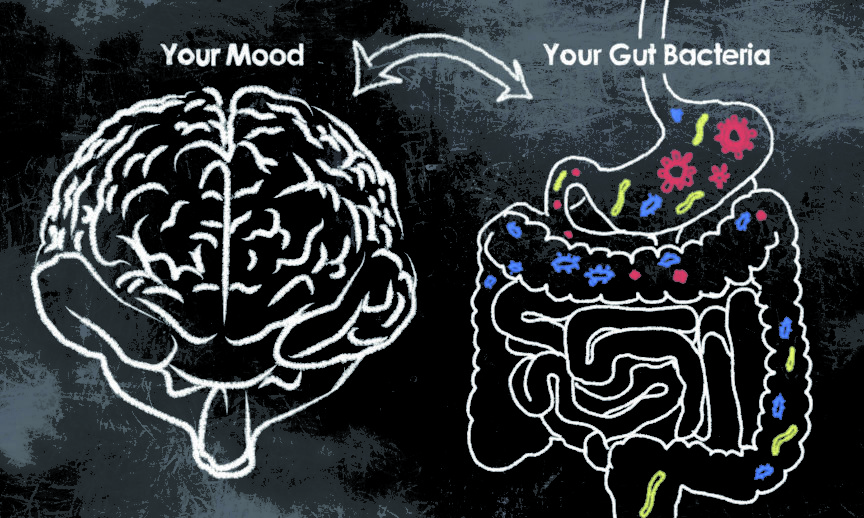If you look in a dictionary, the definition of mental health that you will find is “a person’s condition with regard to their psychological and emotional well-being.” This is a fairly basic definition, in my opinion, and lacking the truth essence of mental health. The World Health Organization, on the other hand, defines mental health as “a state of well-being in which every individual realizes his or her own potential, can cope with the normal stresses of life, can work productively and fruitfully, and is able to make a contribution to her or his community.” That is a much more satisfying definition and certainly something I would like to achieve.
Many people struggle during the day with symptoms of fatigue, inattention, or the afternoon crash. These challenges threaten the balance of our mental health. Lifestyle plays a significant role in the perpetuation of or improvement in these symptoms. Adequate sleep at night and regular physical exercise are two examples of lifestyle factors that are crucial for mental health. Nutrition is another. The choices we make at mealtime have a tremendous impact on our ability to function throughout the day. If we start thinking of food as fuel, it can change the way we look at what we eat and the nutritional choices we make.
The brain and the gut are closely linked, which helps to explain why what we eat is important for our mental health. The brain is responsible for receiving and processing sensory information and initiating responses. We have another “brain” in our gut, and it plays a role in such functions as metabolism, host protection, immunity, and constant communication with the brain in our head. The Gut-Brain Axis is the bidirectional communication between the brain and the gut, and it takes a healthy gut to have a healthy brain.
The microbiome, or “the second brain,” is the trillions of organisms living in our gut, is established at birth, and develops based on our exposure and interactions with our environment. It has been proposed that the microbiome plays a role in most of the biologic processes in the human body. Growing research illustrates the effect of the microbiome on our nervous system. Mental health disorders, such as anxiety and depression, have been associated with imbalances in the gut microbiome. Diet-induced changes in the microbiome have been shown to affect brain function. We are mutually codependent on this community of organisms and keeping it healthy is vital. Diet is one of the many factors affecting the balance of our microbiome. A diet rich in vegetables and fruits, dietary fiber, omega-3 fatty acids, and monounsaturated fats can nourish the microbiome, balance blood sugar, and counteract inflammation. A Mediterranean Diet such as this even appears to be protective against depression.
The regular consumption of sugary foods compromises our mental health. When we consume sugary foods, our blood sugar spikes, making us feel temporarily good. Insulin then removes this sugar from the blood and blood sugar plummets, leaving us feeling tired and unsettled. This may have us reaching for another sugary snack, once again raising our blood sugar and sending us on a blood sugar rollercoaster that results in mood swings, an inability to focus and concentrate, and perpetuating symptoms of fatigue, anxiety, and depression.


Pesticides are also problematic for mental health. They are found in many of the foods we eat and have been implicated in neurological disease and disruption of the gut microbiome. Ingestion of pesticides may impair vitamin function, deplete the body of minerals, and mimic hormones. Recent independent laboratory testing commissioned by the Environmental Working Group showed that many of the oat products consumed by Americans have unacceptable levels of glyphosate, a herbicide linked not only to cancer but also to mood disorders such as depression.
It has been said that the state of mind when you are eating is as important as what you are eating. Common dietary habits that prove problematic for our mental health include skipping meals, eating on the run, choosing convenience foods, and not relaxing when eating. In contrast to these mindless eating habits, Mindful Eating promotes digestion and has been shown to be beneficial for mental well-being. Some of the core practices of mindful eating are bringing awareness to the experience of eating, distinguishing between physical and psychological hunger, appreciating the food you are eating, and choosing foods for nutritional value and personal satisfaction.
Eating together as a family is an important practice for mental health. Members of families who sit down to eat together are better able to problem solve, undergo more complex thinking, and have higher self-esteem. Adolescents that eat meals with their families are less likely to use drugs, tobacco, or alcohol, and they have lower rates of depression. Social interaction at mealtime is beneficial for memory and cognitive function.
What you eat throughout the day is largely under your control. Eating a clean and balanced diet can help you manage stress, work productively, and contribute to your community – hence, support your mental health. Take the reins and make choices that will give your body (and brain) the fuel it needs to function best.








